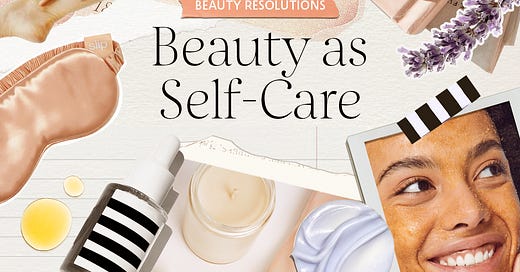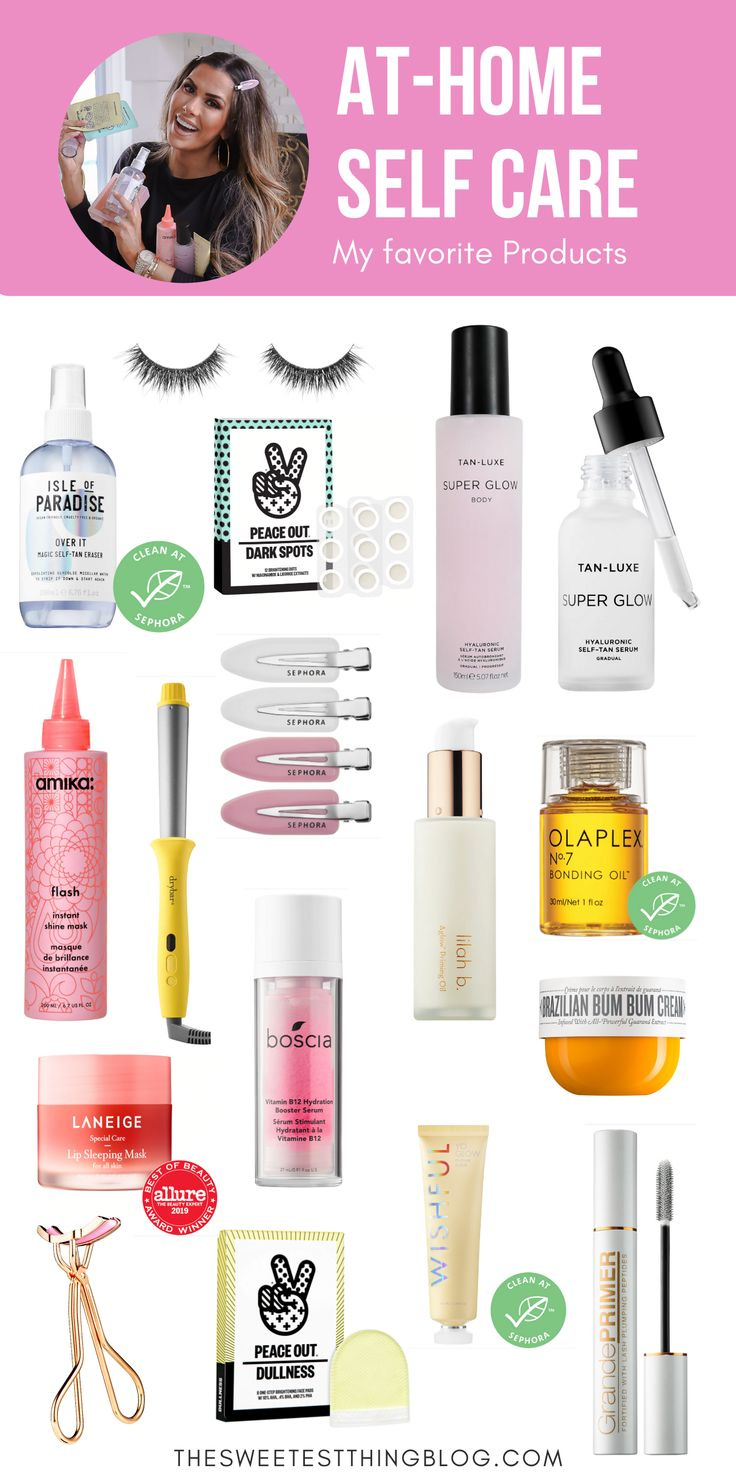Post-Election, Beware 'Self-Care'
Would Audre Lorde recognize "self-care" today? Would we recognize her?
“Caring for myself is not self-indulgence,” Audre Lorde wrote in her 1988 essay collection, A Burst of Light. “It is self-preservation, and that is an act of political warfare.”
If the activist were alive today, she would hardly recognize the concept of self-care, and we would hardly recognize her.
Consider: Her forehead would be wrinkle-free — a placid, paralytic approximation of youth — courtesy of Botox. Her frown lines would be filled with a smidge of injectable Juvéderm, and her eyes would appear wide and awake; perhaps from a blepharoplasty, perhaps from a syringe of filler to the tear troughs.
And her skin! Surely, it would have the glow of a glazed donut, or glass, or maybe Moo Deng — the inhuman icon of her choosing. The radical feminist would achieve this with a rigorous skincare routine: First, a chemical exfoliant to remove her own skin barrier; then, a series of serums (Secure Attachment Comfort Serum from selfmade, for instance, which comes with a copy of Attached: The New Science of Adult Attachment and How It Can Help You Find — and Keep — Love) and moisturizers (Rothea Resilience Cream, perhaps) to replace that barrier with mass-produced products; occasionally, a single-use polyester sheet mask made with industrialized components of the human body (hyaluronic acid, peptides, ceramides) to add shine.
After financially bulwarking the beauty industry with thousands of her hard-earned dollars, purchasing countless products made from the fossil fuels fueling climate change, and perpetuating an ageist, oppressive standard of feminine beauty by embodying it herself, one can imagine Lorde looking in the mirror, satisfied yet unsmiling (because smiling increases wrinkles): This, she would think, is what I meant by “caring for myself”.
I kid.
I can’t say what Lorde would make of the surface-level “self-care” the beauty and wellness industries promote today, since it only rose to popularity in 2016. Following the (first) election of U.S. President Donald Trump, activists circulated the above quote from Lorde to emphasize the importance of tending to one’s needs in times of political upheaval. Cosmetic companies slyly swapped the word “self” for “skin”. Customers ate it up — of course Lorde meant collagen levels when she preached about preservation! — because people were tired, and applying eye cream is easier than engaging in political action.
Over the next year, skincare became the fastest growing market in beauty, amassing $5.6 billion in sales and totaling 45% of the industry’s growth. And over the next eight years, every failure of care by the government created another opportunity for Big Beauty to expand the reach of its narrowing standards, all under the banner of wellness.
An abbreviated recap: As Trump laid the groundwork to strip citizens of basic human rights, beauty reframed the stripping of basic human features — pores, lines, fat, facial hair — as a morale-boosting treat. As his party implemented policies that denied the personhood of people from marginalized communities, the industry positioned beauty as a portal to one’s fullest, truest self (“Look & Feel Like Your Best Self With These Skin Sculpting Devices”). The success of this tactic inspired other categories — aesthetics, plastic surgery, weight loss — and as Trump appointed the Supreme Court Justices who would later overturn Roe v. Wade, lip filler was messaged as a symbol of choice and autonomy (“Here is the type of feminist that I am: I own my body”).
The Covid pandemic of 2020 accelerated the beauty-as-self-care trend. Global health declined; injectables were marketed as an essential part of a holistic health regimen. (In 2019, 16.3 million minimally invasive cosmetic procedures were performed in the U.S. and by 2023, that number was 25.4 million.) Death counts rose; face lifts were rebranded as longevity. (Since 2017, the number of face lifts performed per year has increased 60%.) When schools went remote, parents soothed their children with 10-step skincare routines, and when anxiety skyrocketed, the neurocosmetics market claimed moisturizer could boost mental health.
Today, the (false)1 association between health and appearance is strong enough that actual health-enhancing practices are now advertised as cosmetic practices (sleep aids as skincare, lymphatic drainage as “natural Botox”).
The post-2016 obsession with conventional beauty isn’t a coincidence. It’s a cultural reaction to far right politics, and one that conveniently furthers the movement’s goals. Think of it as the aesthetic arm of trad-wifery2 — a promise that women can find peace, ease, and fulfillment by retreating not into the traditional roles of wife and mother, but into the traditional role of object.3 It’s effective across the political spectrum because “object” does not have a single, easily identifiable “look” (natural or glam, classic or alternative, catering to the male gaze or seemingly rejecting it). The point isn’t the adoption of a particular cosmetic trend; the point is the labor involved in the adoption of any particular cosmetic trend4. The no-makeup makeup and OSEA skincare beloved by Ballerina Farm and the fake lashes and full lips of “bimbo feminists” both demand women invest a not-insignificant portion of their personal power (time, money, energy, headspace) into the impossible, unending, and often compulsory pursuit of standardized beauty.5
With the recent reelection of President Trump, 2016 is here again. The political chaos will probably play out the same way — strategically for beauty brands, if innocently enough for consumers. (As one Gen Z woman told the Telegraph, she spent big at the Sephora sale “to cope with the election.”)
This time around, armed with data and experience, it’s crucial to acknowledge that cosmetically manipulating our bodies in service to a consumerist standard of beauty has only one thing in common with Lorde’s vision of self-care: It’s an act of political warfare. But it’s an act against ourselves, our autonomy, our future, our freedom.
Both the pressure to meet beauty standards and the practice of meeting beauty standards are shown to negatively affect physical health (via damaged skin barriers, migrating filler, botched surgeries, etc.), mental health (via increased appearance-related anxiety, depression, dysmorphia, and obsessive behaviors) and environmental health.
While the beauty industry has recently branched out to target more men, this has not decreased the pressure on women and gender non-conforming people to adhere to a stricter standard of beauty.
Which is not to say that cosmetic adornment isn’t ever a worthy pursuit, but I struggle with calling cosmetic adornment for the purpose of meeting an oppressive, exclusive ideal rooted in sexism, racism, classism, ableism, and ageism “care” or “wellness” or “empowerment”. I struggle with a definition of “care” or “wellness” or “empowerment” that is experienced as consumption, or that is proven to harm our bodies, our minds, and the planet, as industrialized/standardized beauty is.
And again, as with trad wives, the problem is not that some women want to be wives and mothers or objects of beauty. The problem is the increasingly widespread belief that it is the duty of all women to be a wife or mother or object of beauty. If people feel they must be beautiful (or try to be) in order to be healthy, happy, and whole — that they must be beautiful in order to earn their place in society — then beauty functions as an obligation, not a choice. As Tressie McMillan Cottom writes: “If beauty matters at all to how people perceive you, how institutions treat you, which rules are applied to you, and what choices you can make, then beauty must also be a structure of patterns, institutions, and exchanges that eats your preferences for lunch.”






As always, your writing is a breath of fresh air and sanity. Thank you.
oh my gosh jessica! you always make these connections so nicely. i saw a video a few days ago about a woman who got botox, and because of the botox and inability to make facial expressions, she felt like she could no longer feel her emotions. it truly fascinated me and i thought of the "seen and not heard" concept which made me think of women being treated as "objects." thank you for writing this! your honesty has given me the courage to write about beauty and our current culture.